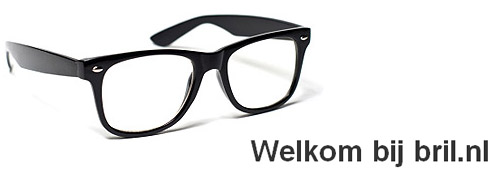
It looks like the Netherlands will get another rather similar store concept next to the Eyelove one at the DA drugstores or the “all-in-one price” M’Eye Choice store(s). Martin Friederichs, managing director of Luxottica Netherlands, Rutger Friederichs, CEO of Friederichs, Rob van der Leeuw, owner of Van der Leeuw Optiek at Delft and John Keijsers, former CEO of Hans Anders and former partner in the Eyelove concept, apparently think the Dutch want to buy more low priced glasses online and at stores like Zara, Etos (drugstores) or Albert Heijn (leading food supermarkets). They work together on a new concept which is about to be launched. So far nothing special although as an (independent) optician you might have your doubts about suppliers who develop more and more into your direct competitors and launch initiatives which promote eyewear as cheap vision tools. At the other hand it creates opportunities for other suppliers and opticians who like to distinguish themselves with quality and innovations.
The interesting thing about this project is that independent opticians are asked to join it. Not as shareholders who will profit of an eventual success but as front soldiers who will offer services which should make the difference with existing concepts like Eyelove. Eventual eye examinations as well as deliveries of the glasses bought online or at other non-optical stores should be performed by independent opticians. In return they receive a very limited fee and are supposed to gain their advantage from the store-traffic created by this concept. This last thing is used as an important argument and advantage but looks very unlikely to us and rather a disadvantage as an advantage. As if a high-end quality restaurant would try to win clients by delivering McDonalds hamburgers bought online. Or as if top brands like Burberry, Prada or Hermes would start to deliver online products of cheap brands in their stores in order to attract those buyers and create traffic. Just like good independent opticians these companies earn a lot of money with other clients. The consumer who chooses to buy an extremely cheap pair of glasses at a drugstore or supermarket will not change his mind in the optical store and buy a pair of Lindberg, Silhouette, Titanflex, Theo, Anne et Valentin, Orgreen, JF Rey or Michael Kors. The system would downgrade independent opticians to post-offices where people can collect their packages and return with their complaints if necessary. And these are complaints about products which these opticians would never sell themselves and would most likely never advice. Not really a good idea we think.
To us it looks like as if the eventual participation or collaboration of independent opticians is mainly necessary to give the concept a certain credibility and strengthen its position compared to competitors like Eyelove. It would mean quite an advantage for the founders and a unique selling point in negotiations with Zara, Albert Heijn supermarkets or Etos drugstores. They sell the products but the opticians take care of the services. “Clicks” and “bricks” but designed in a very special way and with a unique division of the advantages and disadvantages of both “clicks” and “bricks”.
In the Dutch optical store products and services are integral tight together because the services (like eye examinations, optometry, perfect service, contactlens control) most of the time cost money and can only be financed thanks to the sales of frames and lenses. In this concept the founders and the non-optical stores like Zara, Etos or Albert Heijn would earn money with the products and leave the independent optician with a small fee for the cost assuming services. Once again, not a good idea, we think.
For independent opticians the combination of high-end quality store and “discount” at the base of market, is quite a risky one. Good opticians earn more than enough money with the sales of innovative quality products to an interested target group. The goal for the future is to strengthen this position instead of trying to play a role in a complete other part of the market.
Dutch independent opticians we have spoken about this new plan so far are very sceptical. Our request for more information at Martin Friederichs could not be answered immediately although quite some opticians have been informed in the mean time. We do not know yet how many opticians are needed to make a successful start or whether the concept can work without opticians as well. Rob van der Leeuw briefly told us everything is still possible, so maybe the complete plan can still be cancelled when too few opticians prove to be interested. Later this month we have an appointment to talk with him about this new concept. Therefore…to be continued.
















